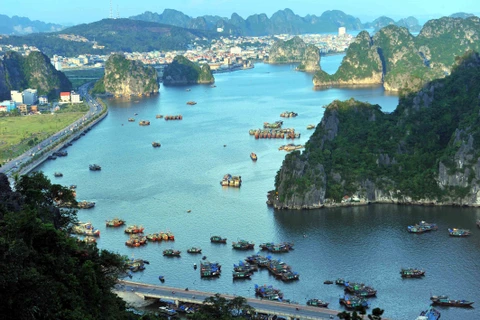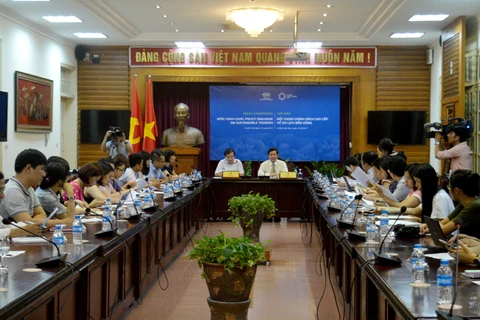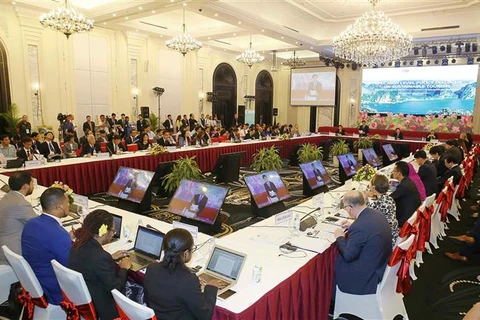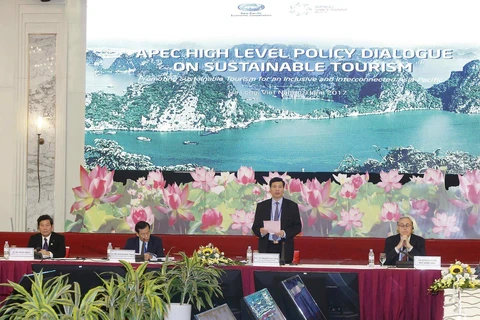Quang Ninh (VNA) – Member economies of the Asia-Pacific Economic Cooperation (APEC) should step up the application of technologies in regional tourism development amid the Fourth Industrial Revolution 4.0 (FIR), a Vietnamese expert said.
At the APEC High Level Policy Dialogue on Sustainable Tourism that took place in northeastern Quang Ninh province’s Ha Long city on June 19, General Director of the DTT Technology Group Nguyen The Trung, who is also member of the Government FIR Working Group, highlighted advantages of applying artificial intellectual (AI) and technologies in the tourism sector.
According to the expert, the FIR gives people more free time and saves labour force, thus increasing the demand for travel. It also enables new areas for tourism development, such as space tours and blended travel.
APEC economies should impose cross border digital management in order to boost travel information exchanging, and facilitate data management, he said.
One-door policies have been applied in the fields of transport, healthcare, agriculture and trading in the Association of Southeast Asian Nations (ASEAN), Trung said, suggesting that APEC economies should also do the same in tourism cooperation.
APEC members should also launch an information portal to share their best practices and connect cross-border campaigns on sustainable and responsible tourism, as well as promote the region’s tourism potential, he said.
More cultural exchanges should be conducted among APEC members to enhance understanding among regional people, so that locals can provide better and more relevant support for tourists, thus luring more visitors from APEC members.
To date, Vietnam has exempted entry visa for nine member economies and implemented electronic visas for three other economies, creating favourable conditions for travelers.
In 2016, top ten source markets of Vietnam are APEC member economies. Vietnam welcomed a record number of 10 million international visitors in the year, including over 8.1 million foreign tourists, or 81 percent from APEC economies, including China, Russia, Japan, Australia, the Republic of Korea and the US.-VNA
























